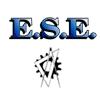Effect of Feeding Sprouted Barley Grains on Rice Straw and Olive Cake on Performance of Goats in Sinai
The present experiment was aimed to study the effect of sprouted barley grains (Hordeum vulgare L.) on a mixture of olive cake and rice straw (50:50) as a media without (T2) or with 1% (T3), 2% (T4), or 3% (T5) of urea solutions in comparison with the control Alfalfa, (Medicago sativa). All diets were fed ad libitum for 45 days. The experiment was performed on twenty desert male goats (18 months old) with an initial body weight of 24.34±1.29 kg randomly divided into five equal groups, (4 animals per group). Five digestibility trials were conducted to evaluate nutrients digestibility and nitrogen balance for experimental roughages. Results showed that the treatments with sprouted barely increased CP content while OM, NDF, ADF and ADL contents were decreased. The highest values of DMI due to the higher palatability for animals fed T5 compared with control group; the same group revealed a significant improvement on CP, EE, NDF and hemicellulose digestibility. The highest TDN% value was recorded by animals fed T5 (58.55%) followed by T1, T4, T3 and the lowest value was for T2. Highest (P≤0.01) DCP% was 9.24% which recorded by T1 followed by T5, T4, T3 and T2, respectively. All animals were in positive N- balance but animals fed on T2 retained the least amount of nitrogen balance (mg/kg BW) among treatments. Goats fed sprouted barely grains treated with urea solutions had significantly (P≤0.01) higher total volatile fatty acids and ammonia concentrations in rumen at 3 hours post feeding. In conclusion, goats in T5 recorded the best TDN, DCP and nitrogen balance with normal blood parameters.
Key words: goats; sprouting barley; olive cake; rice straw; chemical composition; nutritive value; rumen and blood parameters.
INTRODUCTION







A.O. A. C. (1997). Official Methods of Analysis. 16th Ed. Assoc. Office. Anal. Chem., Arlington, VA.
Abate D. and S. Melaku (2009). Effect of supplementing urea-treated barley straw with lucerne or vetch hays on feed intake, digestibility and growth of Arsi Bale sheep. Trop. Anim. Health Prod. 41:579-586.
Abbase, H. (2009). Effect of germinated barley of some parameters productive of broilers. Egypt. J. Nutri. and feeds, 12 (3): 733-734.
Abd El-Nabi, Haiam E. (2007). Using sprouted barley and fenugreek on rice straw to replace berseem hay in growing lamb rations. MSc. Thesis, Fac. of Agri Cairo University, Egypt.
Al-Asfour, O.N. (2009). Effect of biological treatments on nutritive value of some agricultural by- products. M.Sc. Thesis, Fac. Agric., Ain Shams Univ., Cairo, Egypt.
Amal B.K, Z. Aurang, B. Nizakat, A.K. Shahid and S.K. Mohammad (2007). Influence of germination techniques on phytic acid and polyphenols content of chickpea (Cicer arietinum L.) sprouts. Food Chem. 104: 1074-1079.
Anonim (2011). Hydroponic fodder production. An analysis of practical and commercial opportunity. The New Zealand Merino Company.
Armstrong, W.D. and C.W. Carr (1964). Physiological chemistry. Laboratory Direction, 3 rd ed., P. 75, Burges bublishing Co. Minneapolis, Minnestota. Artificially grown barley fodder by Sheep. Indian J. Small Rumen, 4 (2): 63-68.
Blaxter, K. L. (1968). The energy metabolism of ruminants. 2nd Ed. Hutchinson and Co. Lted. London.
Bohnert, D.W., C.S. Schauer, S.J. Falck and T. DelCurto (2002). Influence of rumen protein degradability and supplementation frequency on steers consuming low-quality forage: I. Ruminal fermentation characteristics. J. Anim. Sci., 80: 2978-2988.
Bonsi, M. L. K., P. O. Osuji and A. K. Thuah (1995). Effect of supplementing tef straw with different level of leucaena or sasbania on the degradability of tef straw, sesbania, leucaena, tagaste and vernonia and certain rumen and blood metabolites in Ethopianmenz sheep. Anim. Feed Sci Technol 52: 101-129.
Chavan, J. and S.S. Kadam (1989). "Nutritional improvement of cereals by sprouting." Critical Reviews in Food Science and Nutrition, 28 (5): 401-437.
Chemjon, P. B. (1991. Economic value of urea-treated straw fed to lactating buffaloes during the dry season in Nepal. Trop. Anim. Health Prod. 23:147-154.
Chung, T., Nwokolo, E.N. and J.S. Sim (1989). Compositional and digestibility changes in sprouted barley and canola seeds. Plant Foods for Human Nutrition, 39: 267-278.
Dikshit, M. and Ghadle (2003). Effect of sprouting on nutrients, anti-nutrients and in vitro digestibility of MACS.13 soybean variety. Plant Food Hum. Natr, 58: 1-11.
Doumas, B., Wabson, W. and Biggs H. (1971). Albumin standards and measurement of serum with bromocresol green. Clin, Chem., Acta.
Duncan, D.B. (1955). Multiple ranges and multiple. F. Tests Biometrics. 11, 1-42.
Dung D.D., I.R. Godwin and J.V. Nolan (2010). Digestive characteristics, ammonia nitrogen and volatile fatty acids levels, in sheep fed oaten chaff supplemented with grimmett barley grain, freeze-dried or fresh barley sproutes. Journal of animal and veterinary Advances 9 (19): 2493- 2501.
EEAA (2008). Egyptian Environmental Affairs Agency, Ministry State for Environmental Affairs- Rice Straw Utilization Program Report.
El-Adawy, T.A., Rahma, E.H., El-Bedawey, A.A. and El-Beltagy, A.E. (2004). Nutritional potential and functional properties of germinated mung bean, pea and lentil seeds. Plant Foods for Human Nutrition 58 (3): 1-13.
El-Gammal, M.I. and A.A. Shakour (2001). Emission of pollutants from harvest and burning of rice straw in Egypt villages (North East of Nile Delta). J.Union Arab. Biol., 15 (A): 191-206.
Elisabetta, M., R. Marco., M. Fabrizio., R. Giuseppe., M. Giuseppe and Z. Antonia (2009). Improvement of sheep welfare and milk production fed on diet containing hydroponically germinating seeds. Ital. J. Anim. Sci., 8: 634- 636.
Eshtayeh and F. A. Intissar (2004). A new source of fresh green feed (Hydroponic barley) for awassi sheep. Master in environmental sciences, faculty of graduate studies, at An-Najah National University, Nablus, Palestine.
FAO (2001). Organización de las Naciones Unidas para la Agricultura yla Alimentación. Manual técnico forraje verde hidropónico. Santiago de Chile, Chile.
FAO (2011). FAO Achievements in Egypt. FAO Representation in Egypt. Food and agriculture organization of the United Nations. ISBN, 978-92-5-106936-3, P. 55. FAO Near East, Egypt.
Fayed, M. Afaf (2011). Comparative study and feed evaluation of sprouted barley grains on rice straw versus Tamarix Mannifera on performance of growing barki lambs in Sinai Journal of American Science, 7 (1): 954-961.
Fazaeli H., H. A. Golmohammadi., A. A. Shoayee., N. Montajebi and Sh. Mosharraf (2011). Performance of feedlot calves fed hydroponics fodder barley J. Agr. Sci.Tech. 13: 367-375.
Fazaeli H., H. A. Golmohammadi., S.N. Tabatabayee and M. Asghari-Tabrizi (2012). Productivity and nutritive value of barley green fodder yield in hydroponic system. J. Agr. Sci. Tech. 16 (4): 531-539.
Filya, I.H. Hanoglu, Ö. Canbolat and E. Sucu (2006b). Researches on feed value and using possibilities in lamb fattening of dried olive-cake 1. Effects on fattening performance of lambs. Uludag. Üniv. Zir.Fak. Derg., 201: 13-23.
Ghavidel, R.A. and Prakash, J. (2007). The impact of germination and dehulling on nutrients, antinutrients, in vitro iron and calcium bioavailability and in vitro starch and protein digestibility of some legume seeds. LWT 40 (7): 1292-1299.
Goering, H.K. and P.J. Van Soest (1970). Forage fiber analysis. Agricultural Handbook, No. 379, USDA, Washington. DC, U. S. A.
Goto, M. and Y. Yokoe (1996). Ammoniation of barley straw. Effect on cellulose crystallinity and water-holding capacity. Anim. Feed Sci. Technol. 58:239-247.
Gunun P., Wanapat M., and Anantasook N. (2013). Effects of physical form and urea treatment of rice straw on rumen fermentation, microbial protein synthesis and nutrient digestibility in dairy steers Asian Australas. J. Anim. Sci. 26: 1689-1697.
Ha, J. K., S. S. Lee, S. W. Kim, In K. Han, K. Ushida, and K. -J. Cheng (2001). Degradation of rice straw by rumen fungi and cellulolytic bacteria through mono-, co-or sequential- cultures. Asian-Aust. J. Anim. Sci. 14: 797-802.
Hanafi, E. M., H. H. El Khadrawy, W. M. Ahmed, and M. M. Zaabal (2012). Some observation on rice straw with emphasis on updates of its management. World Appl. Sci. J. 16: 354-361.
Hart, F. J. and M. Wanapat (1992). Physiology of digestion of urea-treated rice straw in swamp buffaloes. Asian-Aus. J. Anim. Sci. 5: 617-622.
Hassan, A.A., M.H.M. Yacout, M.KK. Mohsen, M.I. Bassiouni and M. Abd El-All (2005). Banana wastes (Musa acuminate L.) silage treated biologically or with urea for dairy cows feeding. Egyptian J.Nutr. and Feeds, 8 (1) Special Issue: 49-61.
Helal H. G. (2015). Sprouted barley grains on olive cake and barley straw mixture as goat diets in Sinai. Adv. Environ.biol., 9 (22), 91-102.
Helal, H. G. (2012). Sprouted barley grains on rice straw and Acacia saligna and its effect on performance of growing barki lambs in Sinai. Proc. of the 5th Animal Wealth Research Conf. in the Middle East & North Africa1-3: 331-346.
Helal, H.G. and Mona M. Hassan (2013a). Sprouted zea mays on date palm leaves and potatoes peel waste mixture and its effects on performance of desert goats under dry season in Sinai. J.Animal and poultry prod., Mansoura Univ., Vol.4 (3):117-132.
Helal, H.G. and Mona M. Hassan (2013b). Effect of sprouted corn grains on leucaena tree pruning and olive tree pruning diets for desert goats under Sinai condition. J.Animal and Poultry Prod., Mansoura Univ., Vol.4 (3): 133-147.
Henry, R.J. (1965). Clinical Chemistry. Principles and Technics, P. 293.
Highstreet, A., P. H. Robinson, J. Robison, and J. G. Garrett (2010). Response of holstein cows to replacing urea with a slowly rumen released urea in a diet high in soluble crude protein. Livest. Sci. 129:179-185.
Hussein, L., and Ghanem, K. Z. (1999). Calcium bioavailability from selected Egyptian foods with emphasis on the impact of germination and fermentation. International Journal of Food Sciences and Nutrition 50 (5): 351-356.
Ibrahim, A. Fathia, Hoda, M. El-Hosseiny and I. M. El-Sayed (2001). Effect of using sprouted barley by recycle process of agriculture residues on feeding value, rumen activity and some blood constituents of crossbred sheep. Egyptian J. Nutrition and feeds, 4 (Special Issue) 265- 273.
Information Center of South Sinai Governorate (2014). Agricultural Department, Information Center of South Sinai Governorate. El-Tour, Egypt, March, 2014.
Jackson, M.L. (1958). Soil Chemical Analysis. Constable and Company, Ltd, England.
Jaglan, B. S. and N. Kishore (2005). Compaction behavior of urea treated crop residues in feed blocks. Indian J. Anim. Nutr. 22: 90-93.
Keshtkar, H. and L.L. Ashbaugh (2007). Size distribution of polycyclic aromatic hydrocarbon particulate emission factors from agricultural burning. Atmos. Environ. J., 41: 2729-2739.
Kumar, N.U., S. Singh and D. N. Verma (1980). Effect of different levels of dietary protein and energy on growth of male buffalo calves. Ind. J. Anim. Sci., 51: 513.
Lu, C. D., J. R. Kawas, and O. G. Mahgoub (2005). Fibre digestion and utilization in goats. Small Rumin. Res. 60:45-52.
Mahmoud, A. H., El-Anany, A. M. (2014). Nutritional and sensory evaluation of a complementary food formulated from rice, faba beans, sweet potato flour, and peanut oil. Food Nutr. Bull., 35, 4, 403-413.
Martín García, A.I., A. Moumen, D.R. Yáñez Ruiz and E. Molina Alcaide (2003). Chemical composition and nutrients availability for goats and sheep of two-stage olive cake and olive leaves. Anim. Feed Sci.Technol., 107: 61-74.
Mbaeyi, I.E and Onweluzo, J.C. (2010). Effect of sprouting and pregelatinization on the composition and sensory properties of flaked breakfast cereal produced from sorghum-pigeon pea blens. Journal of Tropical Agriculture, Food, Environment and Extension, 9 (3): 184-192.
McDowell, L.R. (1997). Minerals for grazing ruminants in tropical regions. Anim. Sci. Department center to Tropical Agriculture University of Florida. U.S.A.
Mohammadi, F., Thanaa and M.M. F. AbdalLah (2007). Effect of four seed sprouts on rice straw and spent mushroom media of rice straw to be used as a green fodder. Egyptian J. 1. 1. Nutrition and feeds, 10 Special Issue: 679-691.
Morgan, J., Hunter, R. R., and O'Haire, R. (1992). Limiting factors in hydroponic barley grass production. 8th International congress on soil less culture, Hunter's Rest, South Africa. pp: 241- 261.
Nefzaoui, A. (1983). Etude De L'utilisation Des Sous-produits De L'olivier En Alimentation Animale En Tunisie. Animal Production and Health.
Nnam, N.M. (2000). Evaluation of the effect of sprouting on the viscosity, proximate composition and mineral content of Hungry rice, Acha (Digitaria exilis) flours. Nigerian Food Journal 18:57- 62.
Nonogaki, H., Bassel, G.W. and Bewley, J.W. (2010). Germination-still a mystery. Plant Science doi:10.1016/j.plantsci.2010.02.010.
Norton, B.W. (2003). The Nutritive value of tree legumes. In: Forage Tree Legumes in Tropical Agriculture, Gutteridge R.C and Shelton H.M, (eds). pp.43.
Opera, Y., K. Shimbayashi, and T. Yonemura. 1975. Change of ruminal properties of sheep during feeding urea diet. Jpn. J. Zootech. Sci. 46:140-145.
Obizoba, I.C. and Egbuna, H.I. (1991). Effect of germination and fermentation on the nutritional quality of bambara nut (Voandzeia Subterranean L. Thouars) and its product milk. Plant Foods for Human Nutrition 41:1-10.
Patton, C.J., and Crouch S. R. (1977). Enzymatic determination of urea by calorimetrically method Anal. Chem., 49: 464.
Rao, B. S. N., and Prabhavathi, T. (1982). Tannin content of foods commonly consumed in India and its influence on ionisable iron. Journal of the Science of Food and Agriculture 33 (1): 89- 96.
Resh, H.M. (2001). Hydroponic food production. 6th ed., 567 pp., Woodbridge Press, Santa Barbara, CA.
Rodriguez-Muela, C., Rodriguez, H.E., Ruiz, O., Flores, A., Grado, J.A. and Arzola, C. (2004). Use of green fodder produced in hydroponic system as supplement for lactating cows during the dry season. Proceedings of the American Society of Animal Science, 56, 271-274.
Rubio, L. A., Muzquiz, M., Burbano, C., Cuadrado, C., Pedrosa, M. M. (2002). High apparent leal digestibility of amino acids in raw and germinated faba bean (Vicia faba) and chickpea (Cicerarietinum) - based diets for rats. J. Sci. Food Agric., 82: 1710-1717.
Safari, J. G., D. E. Mushi, L. A. Mtenga, G. C. Kifaro, and L. O. Eik (2011). Growth, carcass yield and meat quality attributes of Red Maasai sheep fed wheat straw-based diets. Trop. Anim. Health Prod. 43:89-97.
Salisbury, M.W., C.R. krehbiel, T.T. Ross, C.L. Schultz and L.L. Melton (2004). Effects of supplemental protein type on intake, nitrogen balance and site and extent of digestion in white face wethers consuming low-quality grass hay. J. Anim. Sci., 82:3567-3576.
Sansoucy, R., X. Alibes, P.H. Berge, F. Martilotti, A. Nefzaoui and P.Zoïopoulos (1985). Olive by- products for animal feed. Food and Agriculture Organization of the United Nation, Rome, © FAO.
SAS (1998). User guide: statistics version 6, 4th ed., Vol. 2 SAS Institue Inc., Cary. NC. USA. Shipard I. (2005). How can I grow and use sprouts as living food? Stewart publishing.
Shoukry, M.M. (2013). An overview on the potential of using agricultural by-products in feeding ruminants. 14 Animal nutrition the scientific conference, pp: 26-29.
Shoukry, M.M., F.S. Hamissa, M. Sawsan, A.H. Ahmed, H.M. El-Rafai, H.M. Ali and Z.M.Z. Abdel Motagally (1985). Nutritive improvement of some low quality roughages for ruminants. Effect of different microbial and chemical treatment on the quality of sugar cane bagasse. Egypt J. Anim. Prod., 25 (2): 329-342.
Shoukry, M.M., F.M. Salman and H.M. Ali (1993). Nutritional evaluation of urea treated bean straw, corn cobs, rice straw and peanut husk using the direct method. J. Agric. Sci. Mansoura Univ., 18: 100.
Suda, M., Watanabe, T., Kobayashi, M. and Matsuda, K. (1986). Changes in starch content and related enzyme activities during the growth of germinating soybeans. Agricultural and Biological Chemistry 50 (12): 3195-3196.
Teimouri Yansari, A., H. Sadeghi, Z. Ansari-Pirsarai and H. Mohammad-Zadeh (2007). Ruminal dry matter and nutrient degradability of different olive cake by-products after incubation in the rumen using nylon bag technique. Int. J. Agric. Biol., 9: 439-442.
Tudor, G., Darcy, T., Smith, P. and Shallcross, F. (2003). The intake and live weight change of drought master steers fed hydroponically grown, young sprouted barley fodder (auto grass). Department of Agriculture Western Australia.
Van Soest, P. J. (1994). Nutritional ecology of the ruminant. Cornell University Press, New York, NY.
Vidal-Valverde, C., Frias, J., Sierra, I., Blazquez, I., Lambein, F. and Kuo, Y. (2002). New functional legume foods by germination: effect on the nutritive value of beans, lentils and peas. European Food Research and Technology 215 (6): 472-477.
Wanapat, M., F. Sundstøl, and T. H. Garmo (1985). A comparison of alkali treatment methods to improve the nutritive value of straw. I. Digestibility and metabolizability. Anim. Feed Sci. Technol. 12: 295-309.
Warner, A.C.J. (1964). Production of volatile fatty acids in the rumen methods of measurements Nutr. Abst. and Rev. 34: 339.
Weldegerima Kide Gebremedhin (2015). Nutritional benefit and economic value of feeding hydroponically grown maize and barley fodder for konkan kanyal goats. Journal of Agriculture and Veterinary Science. 8: 24-30.
Yacoyt, M.H.M., R. Salama and M.I.T. Elgzar (2007). Evaluation of silage made from corn stalks and its effect on lambs performance. Egyptian J. Nutritionand Feeds, 10 (2) (Special Issue): 621-633.









